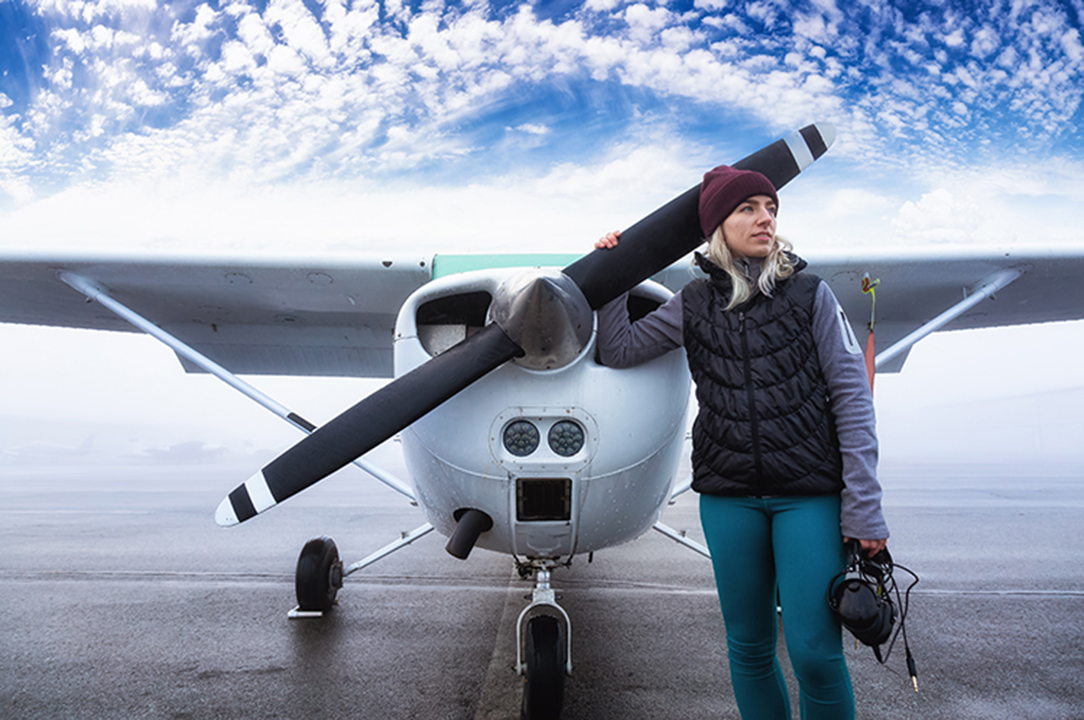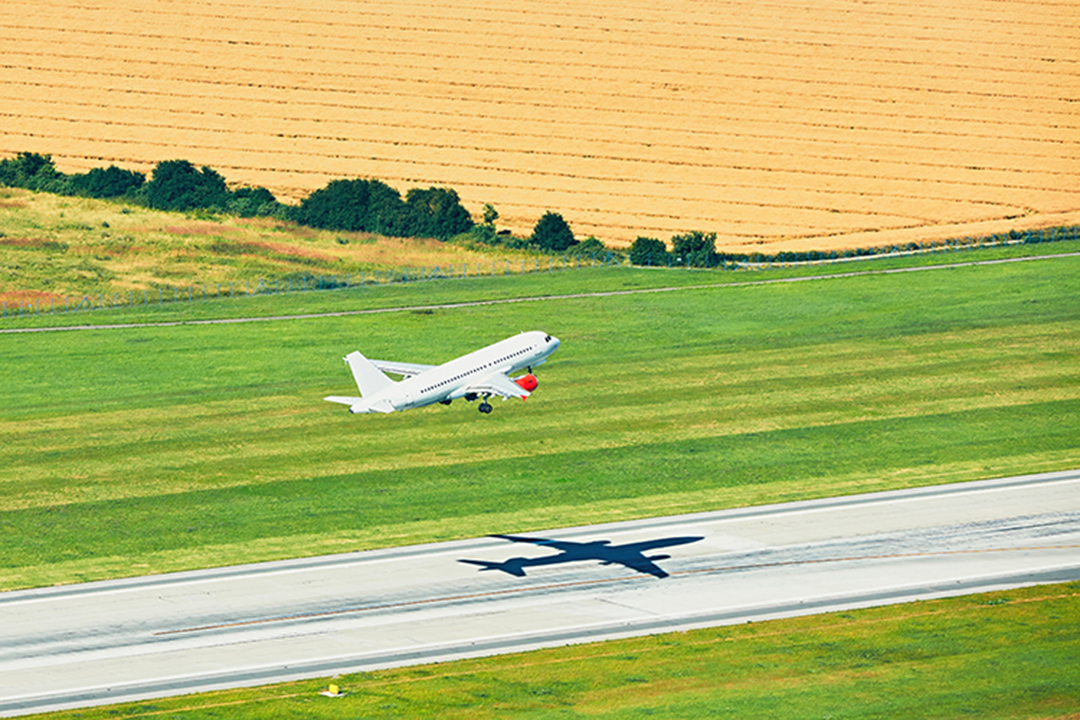Best Pilot Training NC Programs for Your Aviation Career
Sep 01, 2025
Ready to launch your aviation career? Explore the best pilot training NC programs designed to equip you with expert instruction, hands-on flight experience, and comprehensive training. Whether you're aiming to become a private pilot or soar as an airline pilot, discover topflight schools and pathways to achieve your dreams in North Carolina.
Introduction to Aviation Careers
Get the excitement and fulfillment of a career in aviation. Whether your dream is to be a private pilot flying for personal travel, an airline pilot flying commercial flights or a certified flight instructor teaching the next generation of pilots, the aviation industry has many opportunities.
With the growing demand for professional pilots especially in North Carolina, a career in this field means adventure and job security and growth.
Aviation careers give you real world experience that combines technical skills with the thrill of flying, it’s the perfect choice for those who love to fly. For those with a background in military service, the transition into aviation can be especially smooth, building on existing skills and discipline.
Finding the right flight school and training program is key to achieving your aviation goals. North Carolina has many comprehensive programs and state of the art training centers, many located on Aviation Blvd, that cater to pilots at all levels.
For students in the Northeast, pilot training Massachusetts is another excellent option offering top-tier instruction and facilities.
These programs offer hands on flight training including private pilot certification and instrument rating courses led by experienced flight instructors who are dedicated to your success.
By enrolling in a reputable flight school with a focus on safety and quality training you can build a solid foundation for your professional pilot journey and prepare for a successful aviation career in NC.
Finding the Right Flight School
Choosing the right flight school in North Carolina is a big deal in your aviation career. When researching flight schools, consider these key factors that will impact your training and success. First, look into the safety records of the schools you are interested in, safety should always be number one in any flight training program.
Next, evaluate the experience and qualifications of the flight instructors, they play a huge role in helping you gain confidence and master flying skills fast.
The quality and condition of the aircraft used for training is another important aspect to review, you want to make sure you are learning with well maintained, modern planes that meet industry standards.
Another thing to consider when choosing a flight school is the variety of training programs they offer. Many schools in NC have comprehensive programs from private pilot certification to advanced instrument rating courses.
These programs should cater to different skill levels and career goals, whether you are flying for personal travel or a professional pilot career. A good flight school will also be FAA certified, that means they adhere to strict training regulations and high standards. Check reviews and feedback from current and former students to get an idea of the school’s reputation in the aviation community and help you make a decision.
Location and accessibility are practical things to consider when choosing a flight school. Many aspiring pilots prefer schools near major airports like Charlotte and Concord which have better facilities and more diverse flying environments.
Being close to a training center on Aviation Blvd or similar aviation hubs will give you easier access to aircraft, instructors and support services, making your training schedule more flexible and convenient.
If you're exploring options beyond North Carolina, programs like San Antonio flight training also offer excellent facilities and experienced instructors worth considering.
In the end, choosing a flight school that balances quality instruction, comprehensive training programs, FAA certification and convenient location will put you on the right track to achieving your aviation career goals in North Carolina.
Quality of Flight Instructors

When choosing a flight school one of the most important things to consider is the quality of the flight instructors. These are certified flight instructors with a wealth of experience and knowledge to bring to your training.
Experienced instructors teach you the technical skills to fly but also share their own aviation experiences. Their guidance gives you hands on experience and real world training which is essential to build confidence and competence in the cockpit.
A good flight instructor will tailor lessons to your learning style and pace to help you achieve your aviation goals efficiently and safely.
Another thing to consider is the instructor to student ratio which affects the amount of one on one time you will get with your instructor. Smaller ratios mean more one on one time with your instructor and more personalized feedback and focused instruction.
This close mentorship is key to mastering complex flying techniques and preparing for certifications like private pilot and instrument rating.
Flight schools that prioritize quality instruction and have good instructor to student ratios provide a supportive environment for students to thrive and get the comprehensive training needed to launch a successful aviation career in North Carolina.
Flight Training Programs and Curriculum

Flight training programs come in many forms to fit the different goals of aspiring pilots. Whether you want to be a private pilot for personal travel, commercial pilot certified to pursue a career in aviation or enroll in a comprehensive career pilot program, there is a program for you.
These programs are designed to take students through progressively more advanced stages of flight training, so they build skills and knowledge at every step. From ground school lessons covering aviation theory to hands on flight training, each program has a structured approach to prepare students for their specific pilot certifications.
The curriculum for each flight training program is designed to meet FAA requirements and industry standards. Students can expect a combination of classroom instruction and flight hours, covering topics such as navigation, meteorology, aircraft systems and flight regulations.
For example, private pilot programs require a minimum number of flight hours along with ground training, while commercial and career pilot programs require more hours, including instrument rating and multi-engine endorsements.
This comprehensive curriculum ensures students get both the theoretical knowledge and real world flying experience to be successful in their aviation career.
Modern flight training programs also use advanced training facilities and equipment to enhance learning. Many flight schools in North Carolina have state of the art flight simulators and well maintained aircraft, so students can practice in a realistic and safe environment.
These simulators allow students to experience different flight scenarios and emergency procedures that can’t be replicated in actual flight.
By combining technology and hands on training, flight schools offer comprehensive programs to prepare students for the challenges of a professional pilot career, so they are confident and competent when they get in the air.
Advanced Training Facilities and Equipment
Flight schools in North Carolina want to give their students the best training facilities and equipment so their training is better. Modern training centers have high end flight simulators that mimic real world flying so students can practice various maneuvers and emergency procedures in a safe and controlled environment.
These simulators are a great way to build confidence and skills before getting into an actual aircraft. Plus flight schools have a fleet of brand new, well maintained aircraft that meet the latest industry standards. Training in modern planes means students will be current with technology and avionics and ready for a professional pilot career.
Investing in advanced training facilities and equipment shows the commitment of flight schools to stay current with industry developments and offer full programs that meet FAA regulations.
The combination of simulator training and hands on flight experience gives students a balanced approach, they get real world experience while minimizing the risks.
By training with the latest technology and well maintained aircraft students get a more realistic and effective training that builds the skills to succeed in various aviation career paths including private pilot, instrument rating and multi engine endorsements. That’s what you need to achieve your aviation goals and have a career in pilot training NC.
Enrollment and Next Steps with a Reputable Institution

Enrolling with a real flight school is the first step to starting your aviation career. The process starts with an application which may require proof of eligibility (age and medical) and any prerequisites set by the training center.
Once accepted you will work with your flight instructor and program advisors to create a personalized training schedule that fits your needs and goals.
Choosing a school with a good reputation and industry connections is key, so you get quality instruction, modern aircraft and a comprehensive curriculum to prepare you for the demands of a professional pilot career.
These schools have partnerships with airlines and aviation organizations so students get mentorship, internships and job placement after graduation.
Once you’ve got your private pilot license, the next steps are to get additional ratings and endorsements to increase your qualifications and make yourself more employable in the aviation industry.
This could be an instrument rating, multi engine, commercial pilot license and flight instructor rating, all of which will increase your skills and prepare you for careers such as airline pilot or flight instructor.
Many good flight schools have ongoing support and resources for their alumni, including career guidance, continuing education programs and job placement assistance.
This support network also benefits service members transitioning from military to civilian aviation, offering guidance, credit transfers, and access to VA-approved training programs.
This support network keeps you connected to the aviation community and helps you transition from training to a successful aviation career. By choosing the right school and committing to your professional development you can confidently progress your pilot training NC and achieve your aviation career goals.
Conclusion
Picking the right pilot training program in North Carolina is key to turning your love of flying into a career. With multiple programs, experienced instructors and state of the art facilities NC has everything you need to succeed.
Whether you want to be a private pilot for personal travel, an airline pilot or a flight instructor the state’s flight schools have structured curricula and hands on experience to get you ready.
By choosing a reputable school that emphasizes safety, quality instruction and real world experience you can lay the foundation for your aviation career.
And by taking advantage of partnerships, funding and mentorship programs you can make the journey easier and open doors to exciting career paths.
With dedication, proper training and continuous learning you can fly with confidence and achieve your dreams in the amazing world of aviation in North Carolina.
